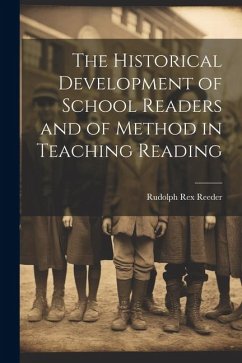
The Phoenix Method
A Parent's Guide to Micro-Schooling and Project-Based Learning for a Curious, Self-Directed Life

PAYBACK Punkte
5 °P sammeln!
The Phoenix Method presents a comprehensive critique of the modern "assembly line" education system, arguing that its industrial-age design stifles curiosity by prioritizing compliance and grades over genuine, student-led learning. As a solution, the author proposes "The Phoenix Method," a new model based on "burning" three outdated pillars: the "Grade" (which is replaced by authentic, actionable feedback) , the "30-Kid Classroom" (replaced by a small "Magic of Six" cohort) , and the "Pre-Set Curriculum" (replaced by student-chosen, project-based learning). This method is divided into two dist...
The Phoenix Method presents a comprehensive critique of the modern "assembly line" education system, arguing that its industrial-age design stifles curiosity by prioritizing compliance and grades over genuine, student-led learning. As a solution, the author proposes "The Phoenix Method," a new model based on "burning" three outdated pillars: the "Grade" (which is replaced by authentic, actionable feedback) , the "30-Kid Classroom" (replaced by a small "Magic of Six" cohort) , and the "Pre-Set Curriculum" (replaced by student-chosen, project-based learning). This method is divided into two distinct phases: "Phase 1 (K-2): Building the Launchpad," which is not unschooling but a rigorous, mastery-based foundation in foundational skills like "Science of Reading" phonics and "Number Sense" mathematics ; and "Phase 2 (Grade 3+): The Learner Takes the Wheel," a "Great Pivot" to a model where student-led projects, driven by their "sparks" and "Need to Know" lists, become the main vehicle for learning. This approach fundamentally redefines the adult's role from the "Sage on the Stage" to the "Coach in the Corner," who facilitates learning by asking questions, providing resources, and managing projects rather than delivering answers. The book concludes by addressing the "Big 8" objections (such as socialization, "gaps," and college admissions) , offering practical structures like the "Kitchen Table Solo" or "Neighborhood Cohort" models , and providing a 30-day launch plan that culminates in a celebratory, portfolio-building "Exhibition Night".













